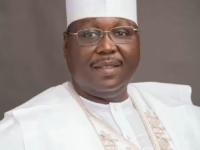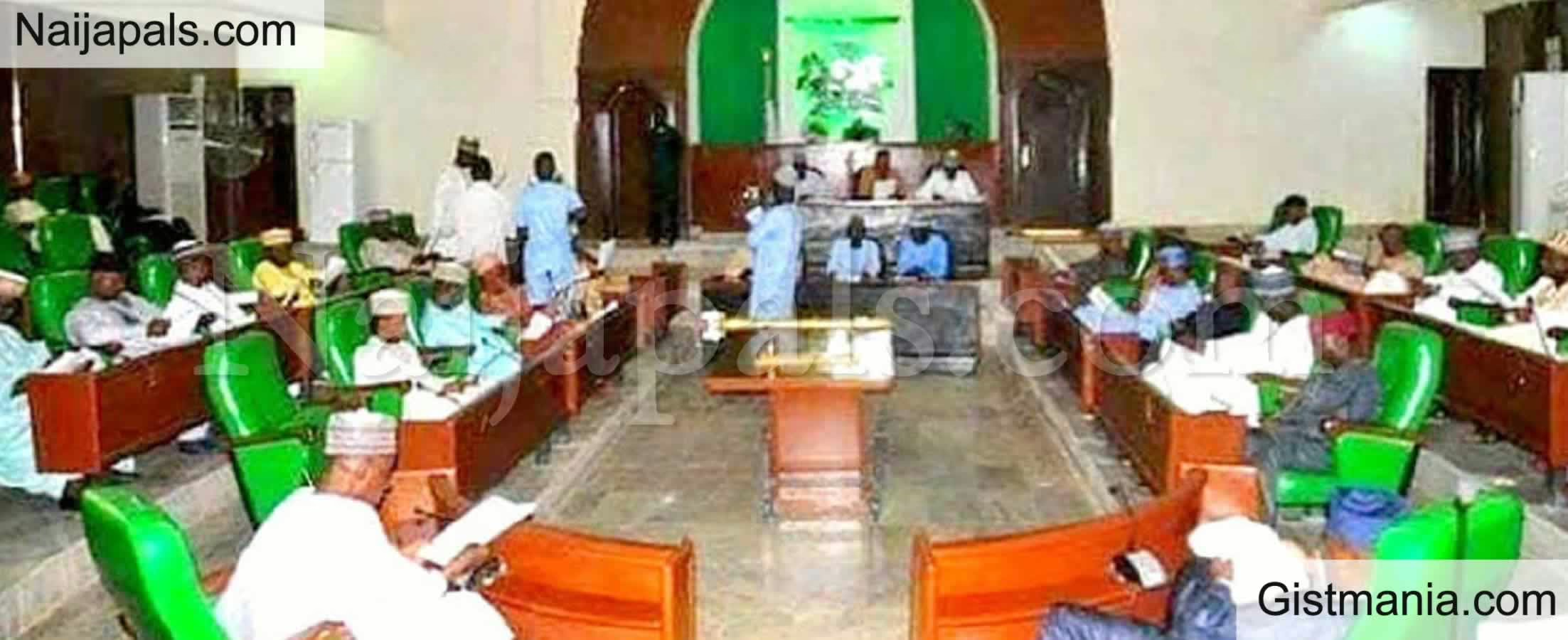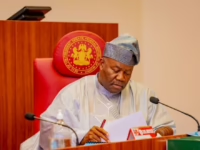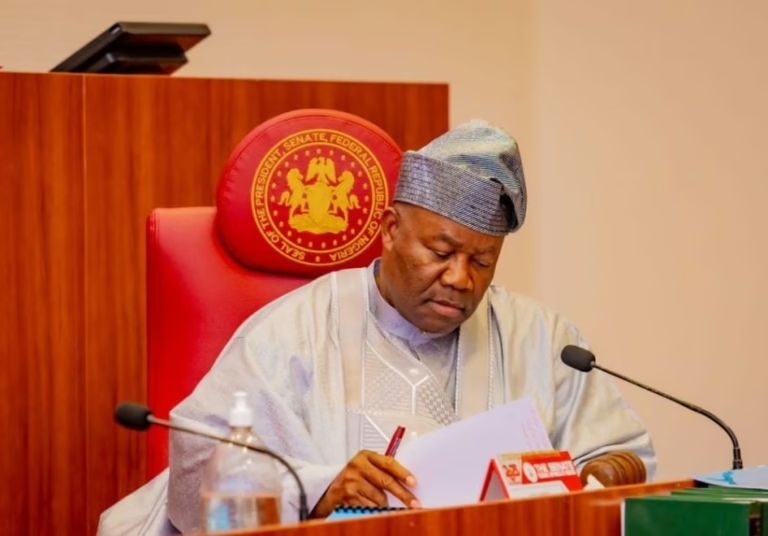Senate President Godswill Akpabio has affirmed that the National Assembly will not permit any member to disrupt its operations or hold the institution “hostage.” He emphasized that maintaining discipline and adherence to parliamentary rules is crucial for safeguarding Nigeria’s democratic framework.
In a statement released on Saturday by his Special Adviser on Media and Publicity, Eseme Eyiboh, titled “The Trials and Triumphs of a Resilient Nigeria’s 10th Senate,” Akpabio underscored the importance of order within the legislature.
“The Senate will never allow itself to be paralyzed by the unruly behavior of any individual member,” Akpabio declared. “True democracy flourishes only when institutions are respected and their regulations are consistently enforced.”
While he refrained from naming any specific legislator, his remarks coincided with heightened tensions following the reinstatement of Senator Natasha Akpoti-Uduaghan (Kogi Central) after a six-month suspension, a decision she has continued to contest.
Akpabio clarified that the enforcement of parliamentary discipline is not intended to suppress legitimate dissent but to uphold order and protect the institution’s credibility.
“Parliamentary discipline is a hallmark of political maturity worldwide,” he noted. “For instance, in the United Kingdom’s House of Commons, the Speaker’s authority is absolute and unquestioned. No member, regardless of their political affiliation or popularity, can openly defy the Speaker’s decisions without facing repercussions.”
He further argued that Nigeria’s legislative procedures are far from outdated formalities; rather, they are vital tools designed to ensure fairness, stability, and respect for leadership within the Senate.
“The Standing Orders of the Nigerian Senate are not mere ceremonial artifacts,” Akpabio explained. “They function as the institution’s living constitution, crafted to uphold equity, consistency, and the integrity of the legislative process.”
Defending the Senate’s authority to discipline members who breach conduct, Akpabio drew comparisons with established parliamentary systems globally, highlighting that sanctions for misconduct are common even in the most advanced democracies.
“In leading parliaments around the world, members who violate rules face prompt disciplinary action,” he said. “In the British House of Commons, suspensions or expulsions occur when a member’s behavior threatens the dignity of the house. Nigeria’s Senate is fully justified in applying comparable standards.”
He described the current 10th Senate as “a body characterized by resilience and equilibrium,” dedicated to proving that “true democracy is freedom exercised within the framework of order.”
“By asserting that no single member’s disruptive tendencies will hold the chamber hostage, the Senate is prioritizing collective responsibility over individual theatrics,” Akpabio stated. “Strong legislatures thrive not by stifling dissent but by ensuring that opposition respects procedural boundaries.”
Akpabio also emphasized that his leadership style balances firmness with inclusivity, asserting that the Senate must remain a stabilizing institution amid rising populist pressures and public skepticism.
“This kind of leadership does not seek popularity but stability,” he affirmed. “Through strict adherence to its Standing Orders, the Senate has restored its moral authority, demonstrating that rules, when properly enforced, serve not as tools of oppression but as safeguards against institutional decline.”
His remarks come at a time when debates over legislative discipline and the scope of free speech within parliamentary chambers continue to challenge the delicate balance between maintaining order and allowing robust opposition in Nigeria’s democratic journey.






















